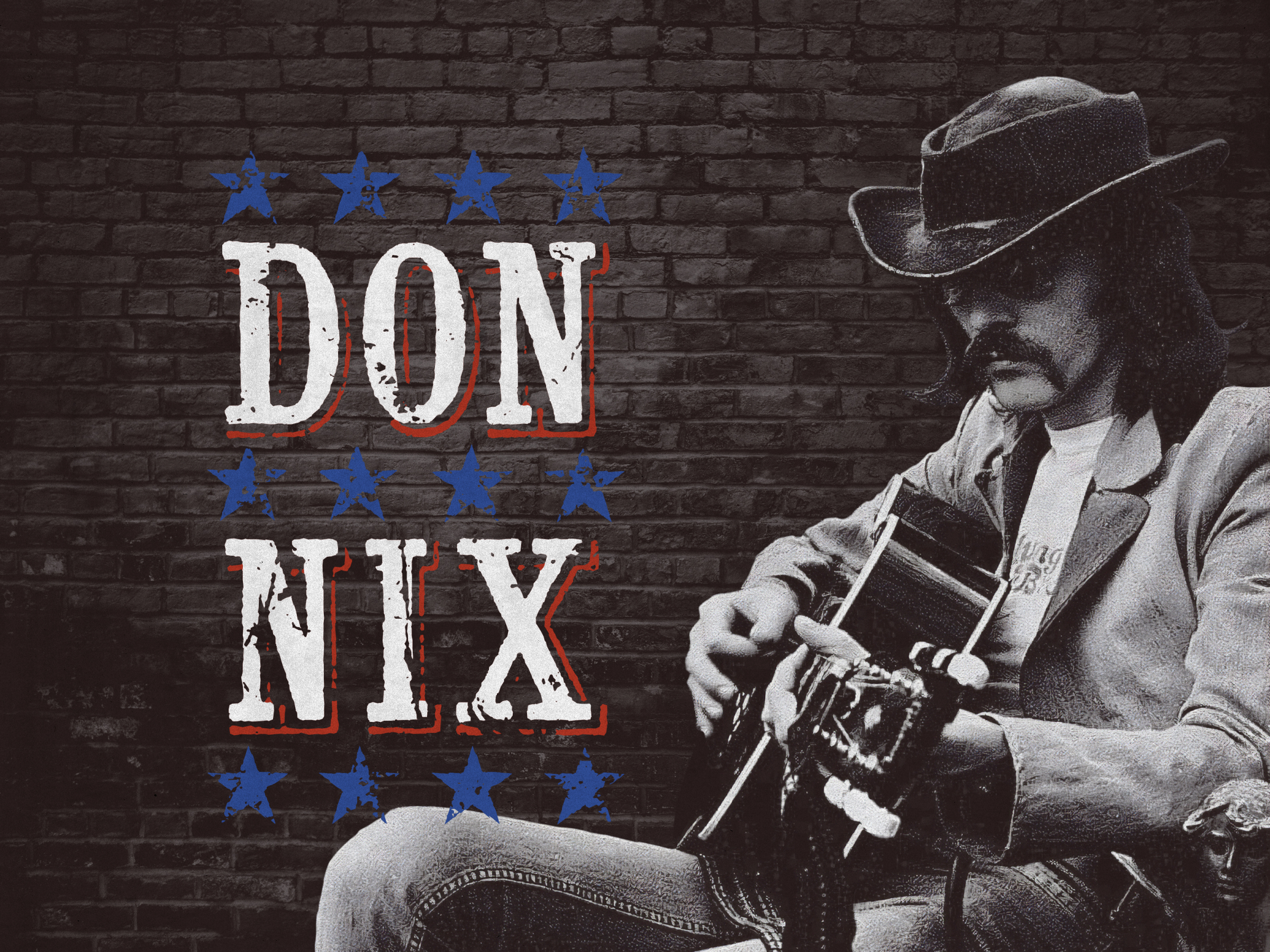

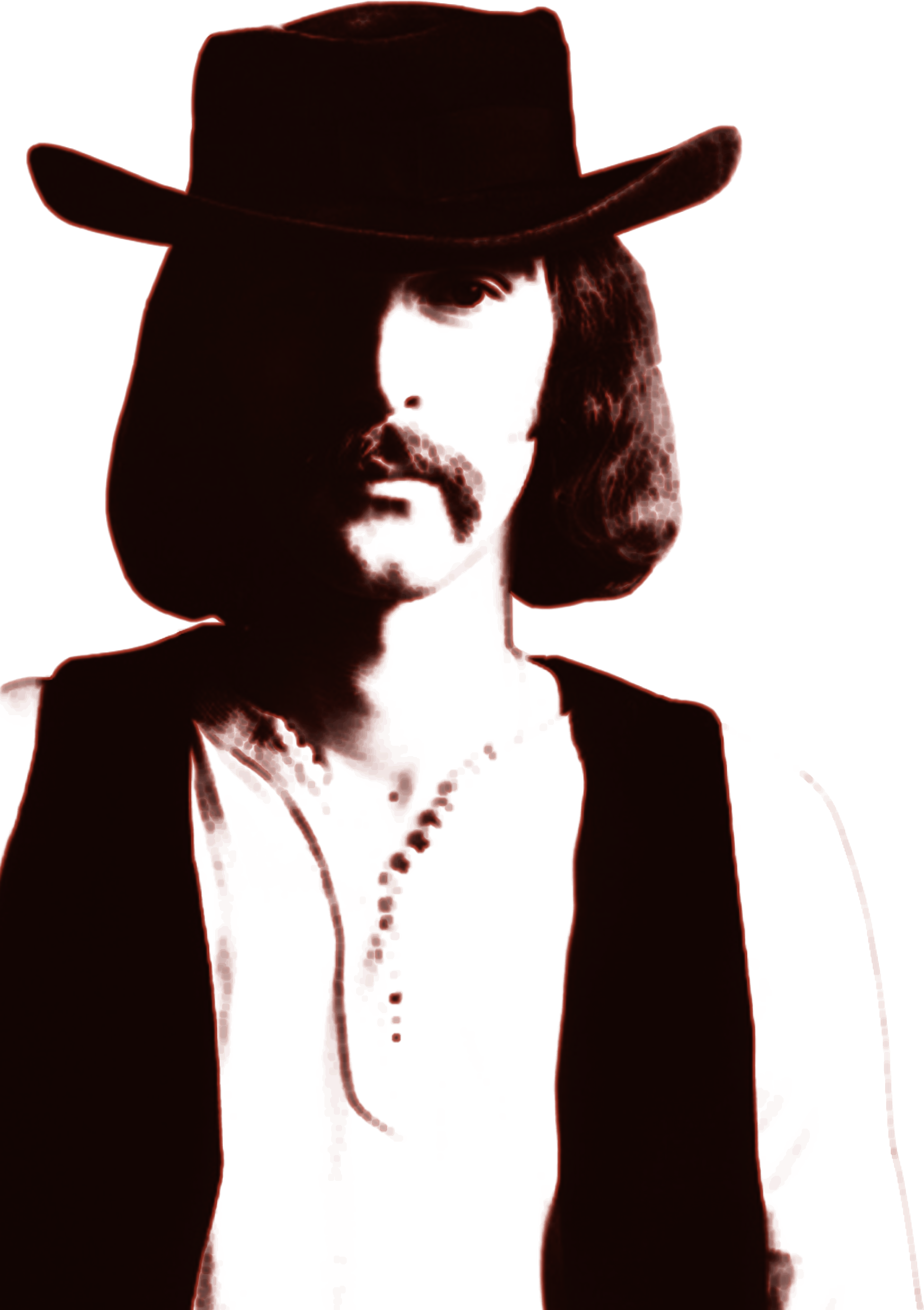
Don Nix has been a mysterious figure in Memphis music all throughout his lengthy career, which began in the early sixties. A not uncommon reflexive question when he walked into a room would have been, “I know this guy is a star of some kind. I know I’ve seen him, but I can’t quite place him. Who is he?”
Tall, lanky with shoulder-length hair and a handlebar mustache, Nix presented the appearance of a rock star, straight from Central Casting. Despite his pop idol looks, his demeanor was always warm and friendly and was, in fact, very approachable. No matter where in the world or with whom Don Nix traveled, he carried his southern charm with him.
In the late 1960s and 1970s as fans scoured the planet looking for glimpses of their musical heroes, many of them found their way to Memphis and to his spacious home on Central Avenue. That same pilgrimage was made by the likes of George Harrison, Leon Russell, John Mayall, Joe Cocker and other mega-stars of the era to hang out with the legendary Nix.

Born in Memphis in 1941, Don Nix is a member of the first generation of 1950s high school kids to claim rock ‘n’ roll as the music of their generation. He was thirteen when Elvis exploded into the world’s musical consciousness, just old enough to begin to form independent ideas and opinions.
As Rolling Stones guitarist Keith Richards wrote in Life, his autobiography, “…the one that really turned me on, like an explosion one night, listening to Radio Luxembourg . . . was ‘Heartbreak Hotel.’ That was the stunner. I’d never heard of Elvis before. It was almost as if I’d been waiting for it to happen. When I woke up the next day I was a different guy.”
In the ‘50s the world was changing, and music was a catalyst. Nix didn’t know it then, but he would soon be at the heart of it. Patterned after the legendary black bands who played at West Memphis’ Plantation Inn and Christian Youth Organization (C.Y.O.) events, he and a handful of high school friends formed a rhythm and blues band to play local dances. The group included other future Memphis Music Hall of Fame musicians Steve Cropper and Donald “Duck’ Dunn. They were heavily influenced by the music played on local Memphis radio, especially the Dewey Phillips program. Nix said…
The eclecticism of Phillips’ programming coupled with the high quality of local black bands offered the young artists a broad range of musical influences. While many musicians in Nix’s generation of high school wanted to play rock ‘n’ roll inspired by Elvis Presley, Jerry Lee Lewis or Buddy Holly, he and his buddies only played rhythm and blues. “We didn’t know rock ’n’ roll. All we did was R&B. We played Bobby Blue Bland songs and stuff by guys like that.”
They recorded a song called “Last Night” with a group of seasoned session musicians that was the first hit record for the nascent Satellite Record Company, which soon changed its name to Stax Records. The group was The MarKeys and Don Nix’s professional career had begun.

The success of “Last Night,” released in 1961 by going to #3 on the pop chart and #2 on the R&B chart, put Don Nix and his young friends on tour for a few years until Steve Cropper left to return to Stax as a producer and session musician with Booker T. & The MG’s. Eventually, Nix quit the road and joined his old classmate at the label, playing on sessions for a variety of soul stars including Carla Thomas and William Bell. During those years he recognized the final piece of his Memphis music cornerstone: the blues.
He developed a friendship with singer/pianist Leon Russell. Russell, himself a prolific recording sideman and producer, showed Nix the mechanics of recording session production. In the late ‘60s, abetted by Leon Russell’s tutelage and his natural ability, he returned to Memphis to produce at Stax and Ardent studios.
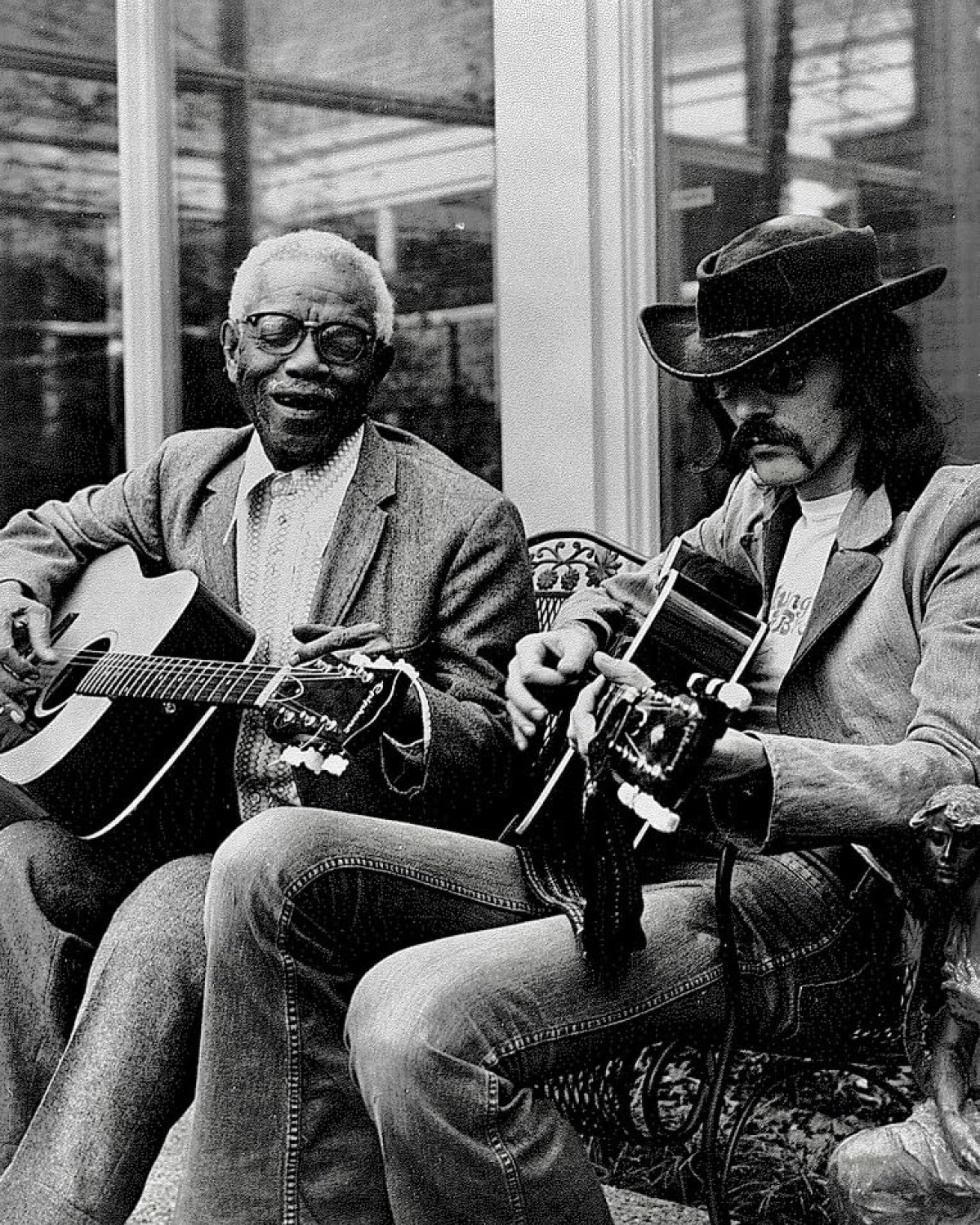

The late ‘60s and ‘70s were productive years for Nix. He produced a succession of records by iconic musical figures of varied genres. Albums by blues legends John Mayall, Freddie King and Albert King (no relation) were early ‘70s productions. He was versatile enough to make a name for himself as a talented rock producer, as well, helming records by Delany & Bonnie, Jeff Beck, and local acts Molach and Sid Selvidge. He recorded a song he wrote called “Going Down” for the Molach album that has since become a blues/rock anthem. It has been recorded by a range of artists, from Delbert McClinton and Deep Purple to Freddy Fender to heavy metal rockers The Lynch Mob. Freddie King’s version was his signature song.
In 1970 he was signed as an artist to Shelter Records, the label owned by his old friend Leon Russell. His two records for Shelter, “In God We Trust” and “Living By The Days,” sold modestly but his reputation within the industry as a talented producer/musician was established.
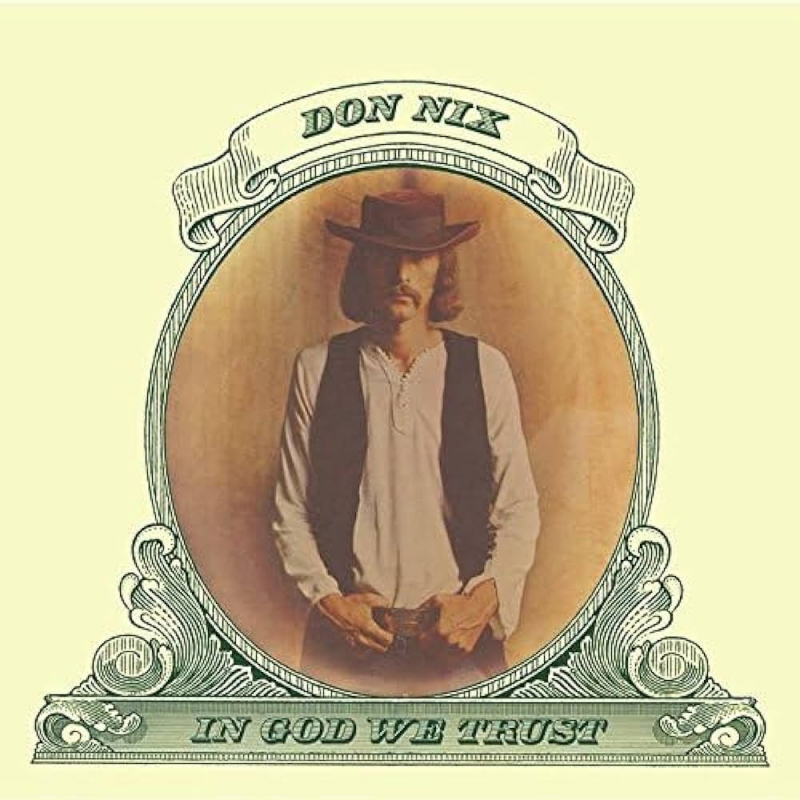
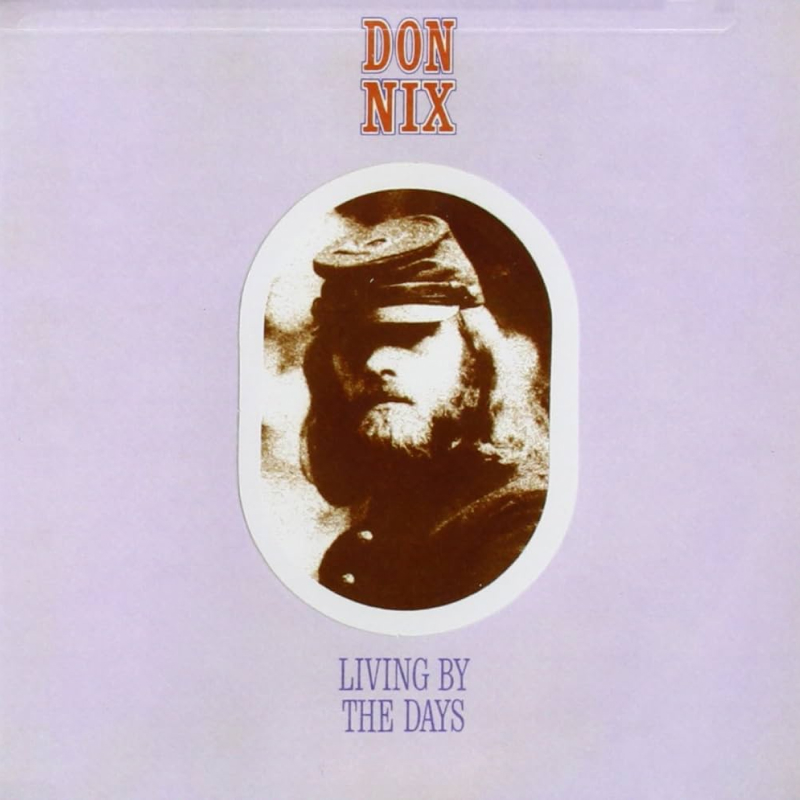
That’s when rock stars came to Memphis to hang out with Don Nix.
“I guess being in the music business like that, you don’t really look at somebody as a star. You just take them for what they are. A couple of the Beatles and people like that would come, but I had met those guys in California. I would go to England and stay at George Harrison’s house, so he wasn’t like a big star to me. He was just a guy. I remember one night when it was Larry Raspberry’s birthday, and we had a party at my house. I had a big old house at that time because I thought that is what you did with the money; I made a lot of money and bought a big house. Mayall was staying with me at the time, and he had gone the night before; he had gone to see Eric Clapton who was in his original band in San Diego or somewhere. We were having this little birthday party with some friends and in walks Eric Clapton and that was surprising.”
“I could remember Joe Cocker staying with me… I had a little one-room apartment back then, a kind of a beatnik pad and so he came home and stayed a couple of weeks, and nobody ever said anything about it. Most of time we’d go to Burkle’s and eat. I knew people that hung out there and they’d come by and looked at Joe and one guy was just looking at him and you could tell he was like, ‘No, that’s not him.’ We never once said, ‘Hey, this is Joe Cocker,’ but people would find it out.”

Regardless of fame and fortune, Nix never forgot the roots of his music. In 1971 he organized a tour with Furry Lewis, recorded and released on Electra Records as “The Alabama State Troupers Road Show.” The same year he led the choir at the legendary Concert for Bangladesh organized by his friend George Harrison at Madison Square Garden.
That concert and subsequent album set the template for later socially-conscious music events like Farm Aid, Live Aid, and We Are The World. Organized by George Harrison and featuring Ringo Starr, Eric Clapton, Leon Russell, Billy Preston, and Bob Dylan, The Concert for Bangladesh raised money and awareness for the human tragedy then taking place in Bangladesh.
Don Nix passed away on December 31, 2024, at his Germantown home at the age of 83.
Few would.
Copyright 2023 David A. Less. All rights reserved. No part of this article may be reproduced without the prior written permission of the copyright owner.
Be the first to add your voice.